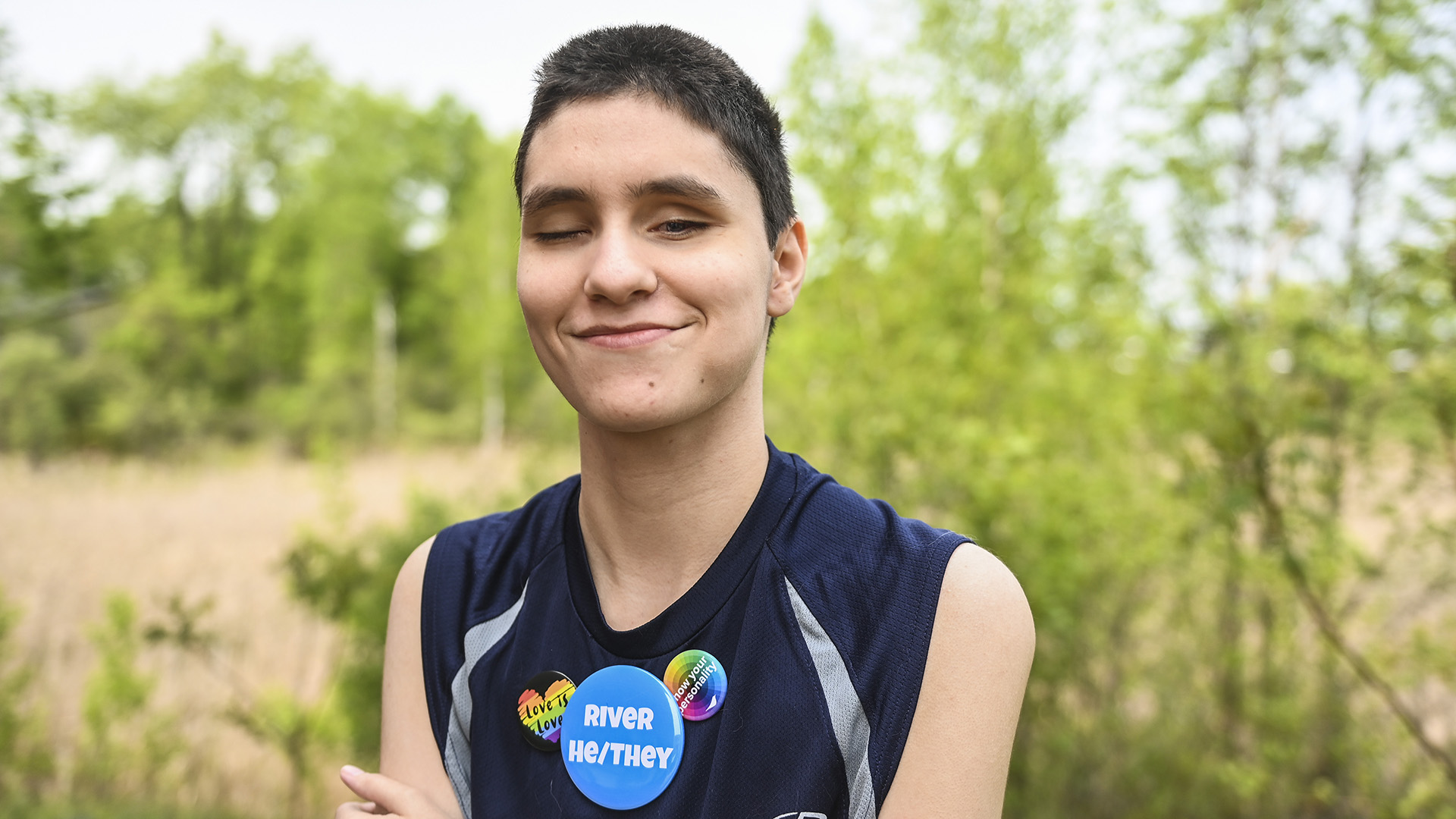Children's Health
Growing Up with an Alcoholic
How to Help Preserve Childhood Experiences
One in four children in America grow up in a home where there is alcoholism or drug abuse. For most of these children, there is no option to leave the addicted household.
Many adult children of alcoholics look back and wish that something had been done to preserve their short and precious childhood years – some protection against the harsh reality common in such households.
“Everyone deserves a happy childhood,” said Steven L. Pastyrnak, PhD, division chief, pediatric psychology, Spectrum Health Helen DeVos Children’s Hospital. “It’s not hopeless. There are things that non-addicted family members can do to protect young children from the full impact of this family disease.”
According to the National Association of Children of Alcoholics, children of alcoholics are four times more likely to become alcoholics themselves someday. Pastyrnak believes that protecting the childhood experience could positively impact the choices a child makes in regards to his or her own future use of alcohol.
“People of all ages turn to alcohol as a means of escape from their lives. A happier life, particularly during the critical childhood years, alters the need to find escape through alcohol and drugs.”
Pastyrnak offers the following suggestions for adults with young children:
– Plan family celebrations, such as birthday parties, away from the home, at a place and time that will limit the likelihood of the addicted parent spoiling the event.
– Be prepared to quickly remove the child from the home in a non-traumatic manner to avoid exposure to potentially frightening behavior by the alcoholic.
– Use storytelling to alleviate fears and introduce the child to the concepts of hope and possibilities. “Many of these children grow to become hopeless. They don’t see a happy ending in their home, so they doubt it really exists,” said Pastyrnak. “Children need to hear stories of people and characters who overcome great obstacles, succeed and find happiness.”
– Fortify your child’s life. Keep him or her busy with positive experiences – school, activities, classes – and positive people and friends.
– Find a substitute for the addicted parent who is available and willing to step in when necessary at important times. For example, an uncle or grandfather attending events organized around fathers.
– Watch what is said around the child. “That old ‘sticks and stones’ saying is nonsense. Words do harm children. Sober adults should protect children from hearing negative adult conversation – whether by the alcoholic or themselves,” warns Pastyrnak. “Even if they don’t understand the words, children absorb the emotional impact of what they hear.”
– There is support available for even the youngest children. Consider getting the child involved with a local support group such as Al-Anon or Alateen. Knowing that others are experiencing the same challenges can help a child understand that they are not alone and may provide them with the tools that they need to cope.
The National Association for Children of Alcoholics (NACoA) is the national organization working on behalf of children of alcohol and drug dependent parents. The organization’s mission is to eliminate the adverse impact of alcohol and drug use on children and families.
Spectrum Health is a not-for-profit health system in West Michigan offering a full continuum of care through the Spectrum Health Hospital Group, which is comprised of nine hospitals including Helen DeVos Children’s Hospital, a state of the art children’s hospital that opened in January 2011, and 140 service sites; the Spectrum Health Medical Group and West Michigan Heart, physician groups totaling more than 700 providers; and Priority Health, a health plan with 600,000 members. Spectrum Health is West Michigan’s largest employer with 19,000 employees. The organization provided $204 million in community benefit during its 2012 fiscal year.




